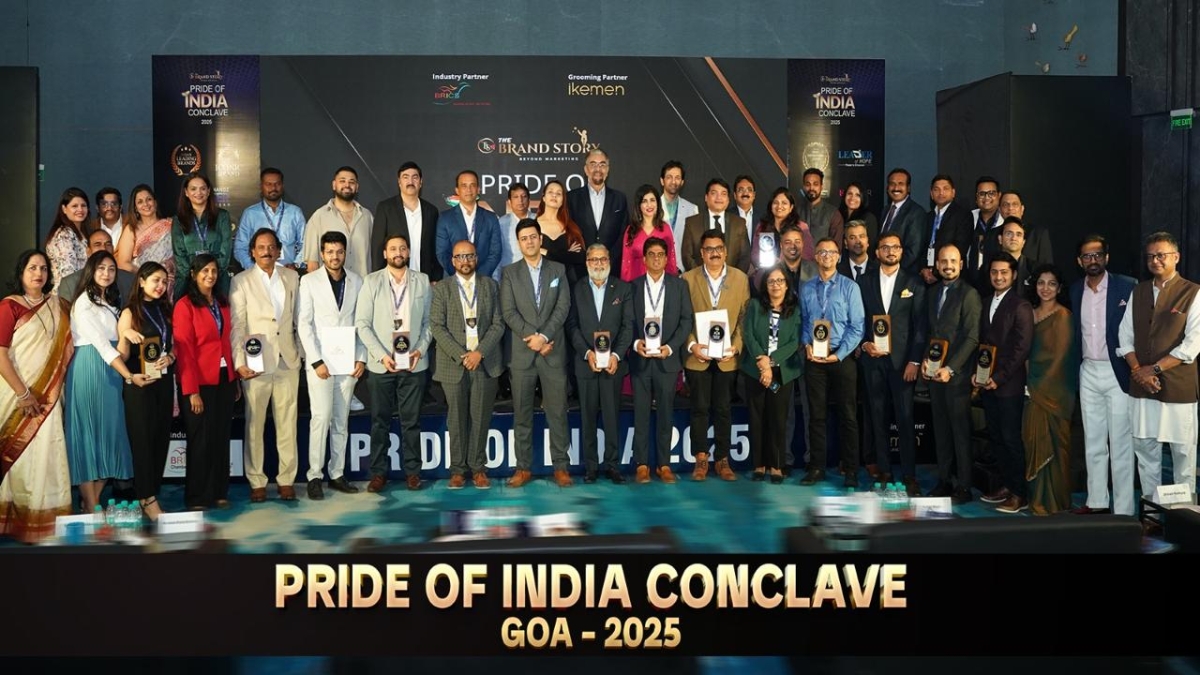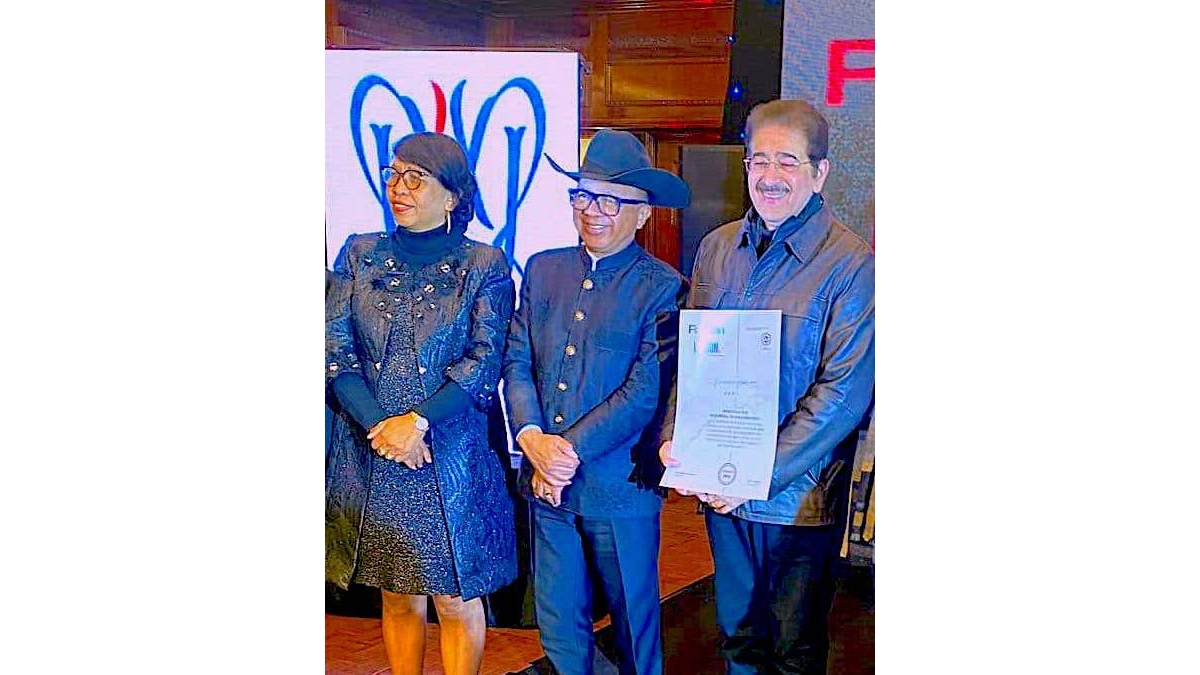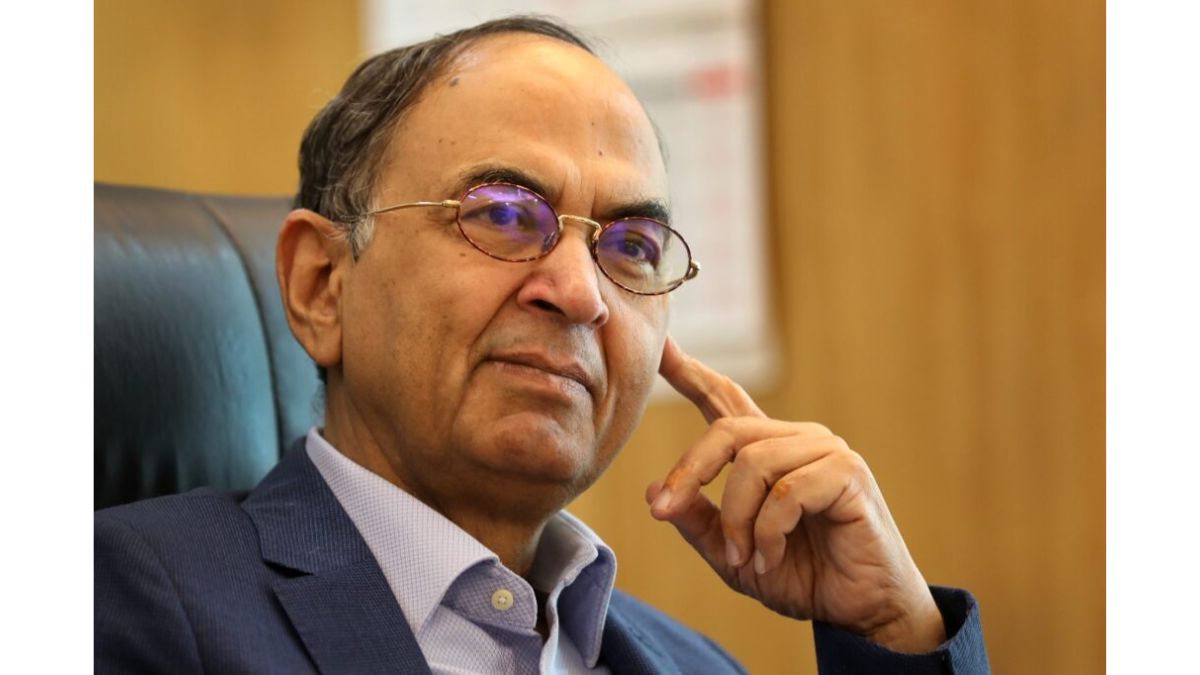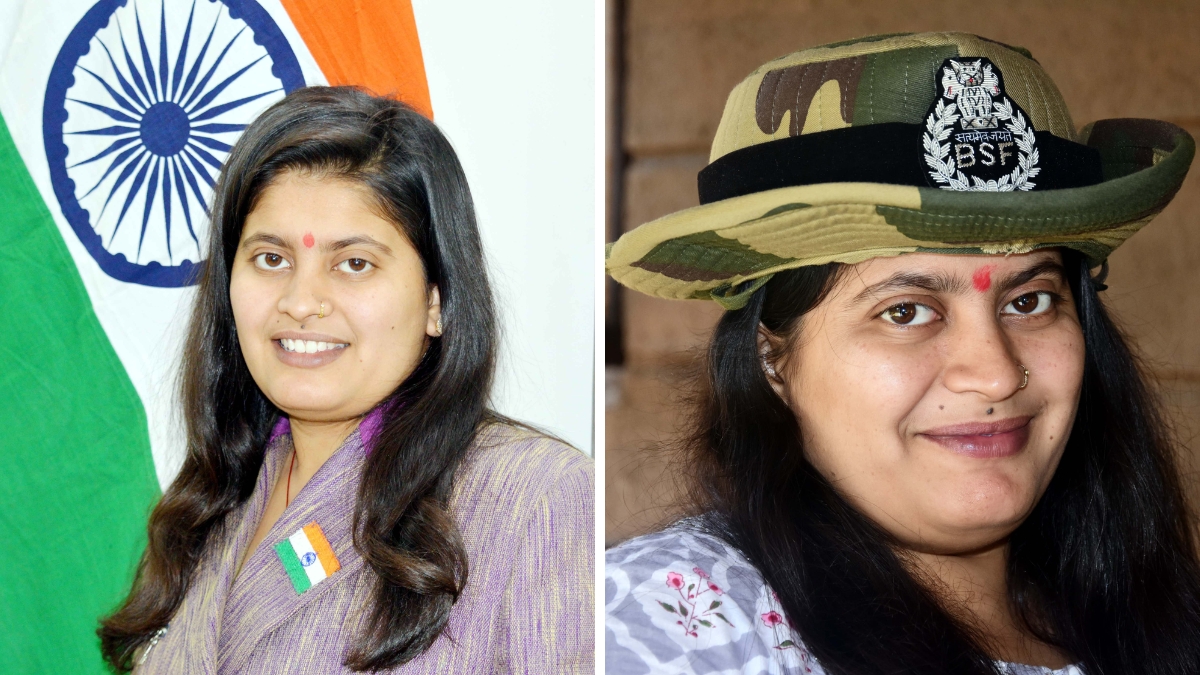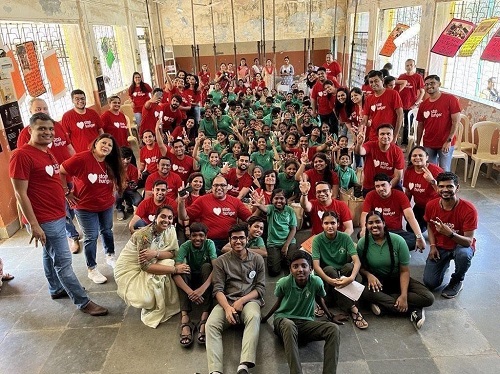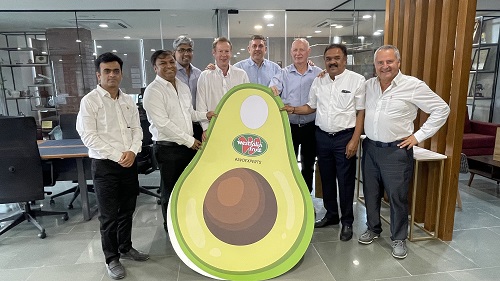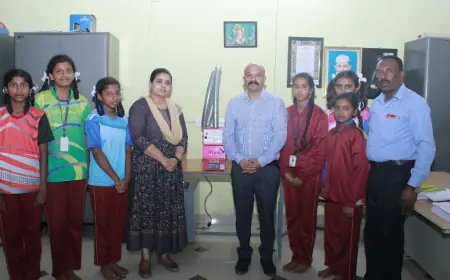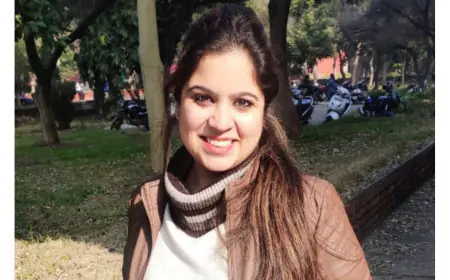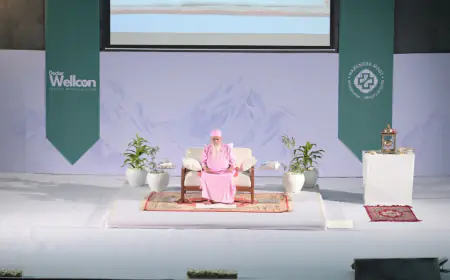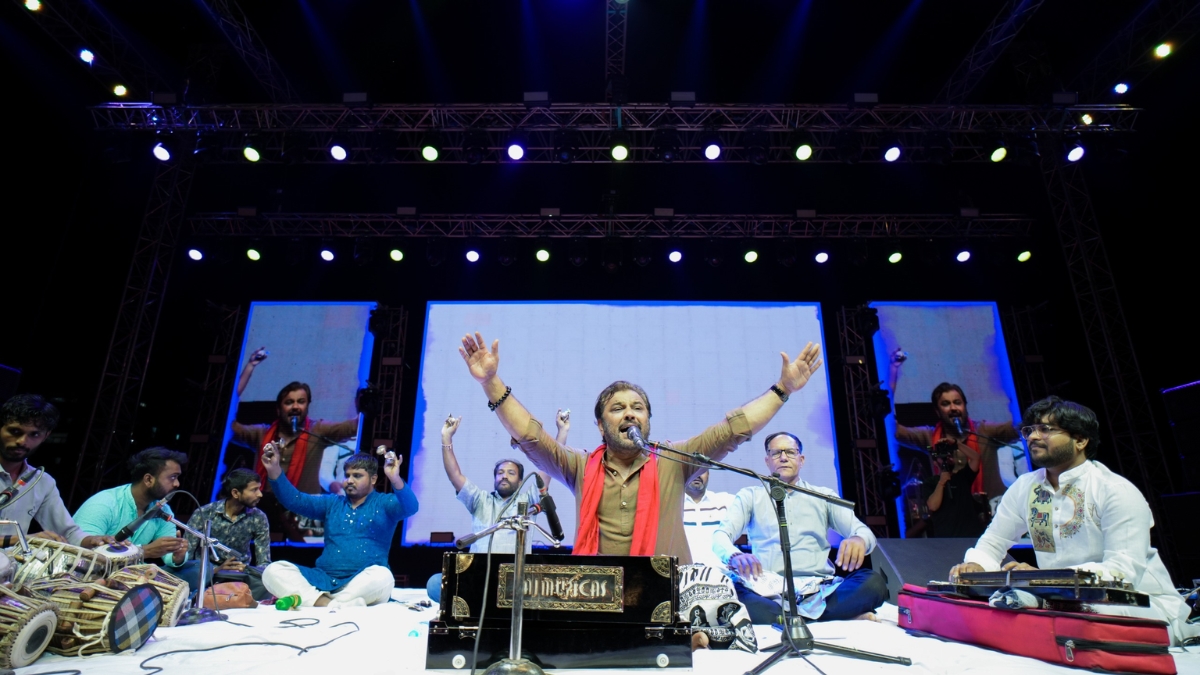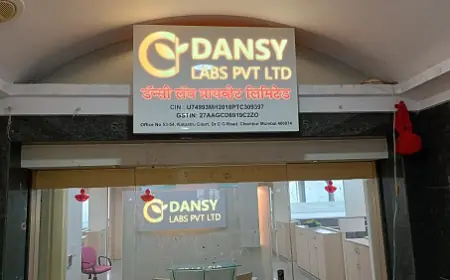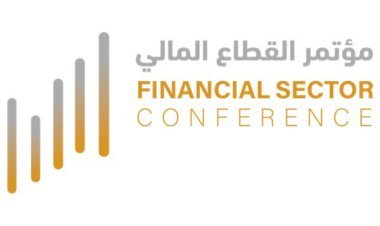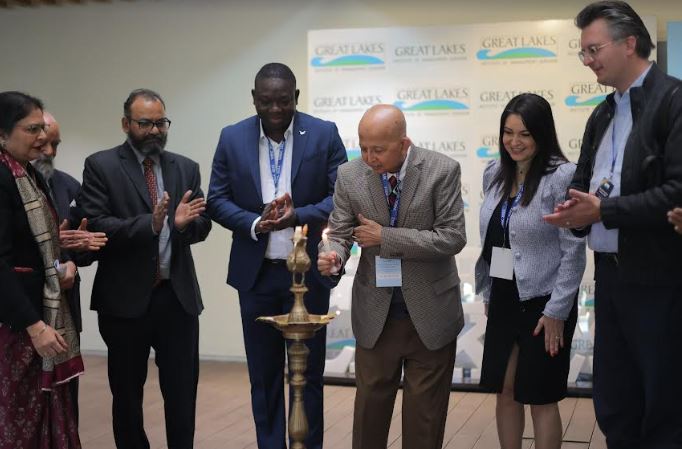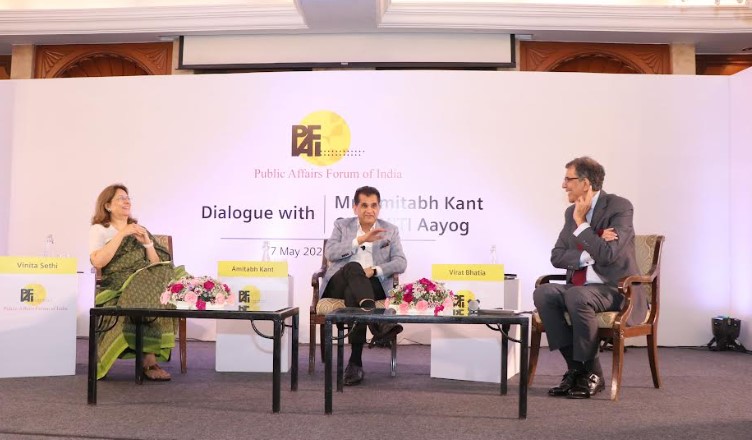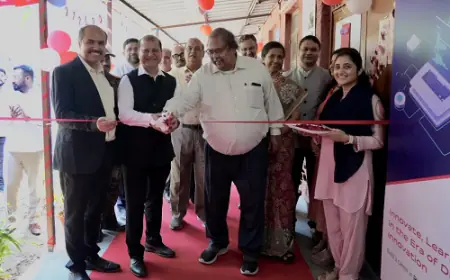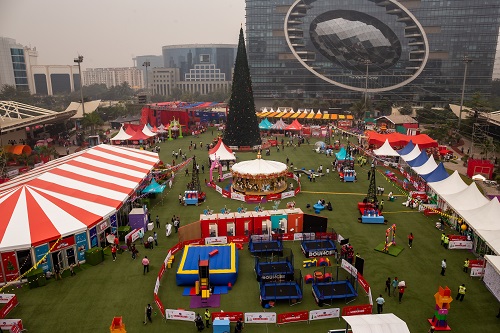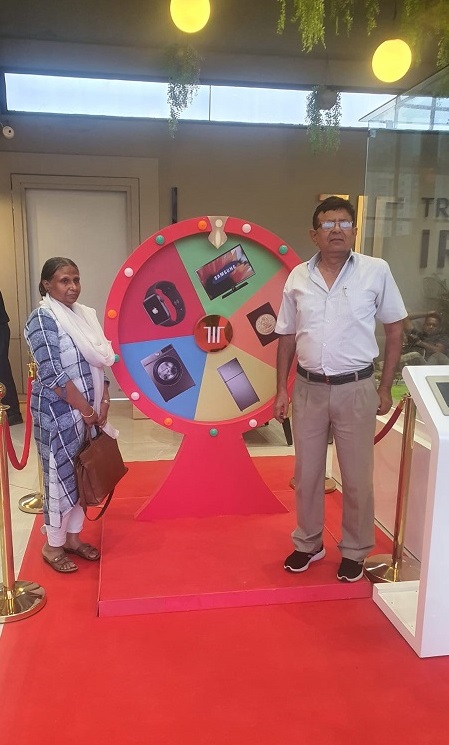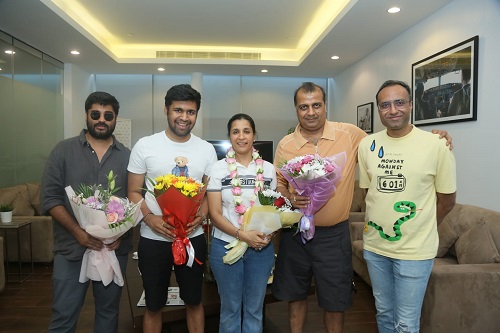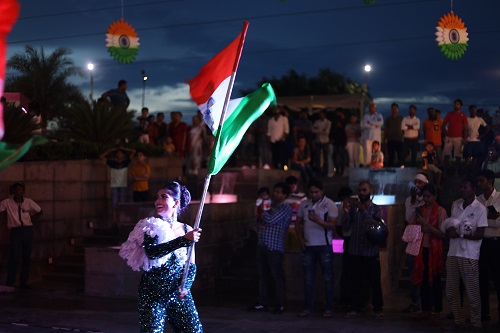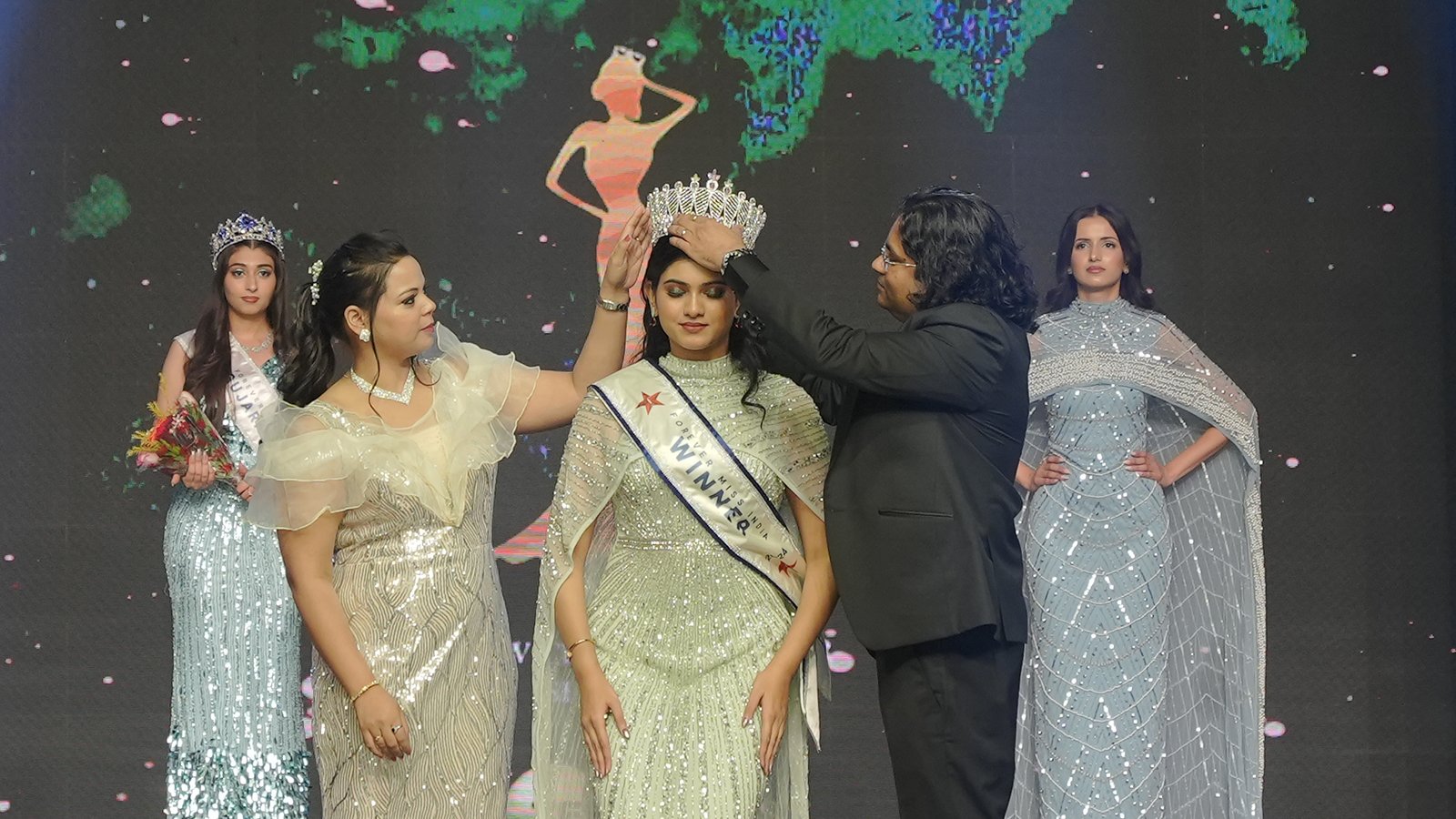EEF 2022 Showcases Creative Business Forum
Russia | India The Creative Business Forum 'Sociocultural Development of Northern Regions' was held as part of the 7th Eastern Economic Forum. The forum was organized by the Innosocium Foundation, the social platform of the Roscongress Foundation, with the support of the Ministry for the Development of the Russian Far East and the Arctic and was part of the plan of events of Russia's chairmanship of the Arctic Council in 2021-2023, which are being organized by the Roscongress Foundation. EEF 2022 Creative Business Forum The business programme of the Creative Business Forum was dedicated to the sociocultural development of the northern regions and focused on promising areas of creative industries and the development of the social sector in the northern territories. The session participants discussed the specifics of developing northern cities, industrial Arctic design, the traditions of Indigenous peoples, tourism, the impact of technology on the life in the North, the regional film and animation industry, national cuisine, and the creation of local art residences and art hubs. The sessions focused on social aspects of supporting youth and Indigenous peoples. "The Creative Business Forum's actual effectiveness as an important tool for developing creative industries directly affects the creation of a strategy for promoting creative entrepreneurship, especially in the changing economic and geopolitical environment. Developing social communication in this special sector of the economy helps to increase social inclusion, establish business contacts, and strengthen the reputation of creative industries as a recognized driver of the modern economy," said Anton Kobyakov, Adviser to the Russian President and Executive Secretary of the EEF 2022 Organizing Committee. The official EEF business programme included the following sessions: 'North-South: Using Ethnocultural Heritage as a Resource for Sustainable Development', 'The Creative Potential of the North. How to Attract Young People in the Arctic Region', and 'Social Agenda of the Regions: New Global Crossroads'. The Creative Business Forum sessions held outside of the business programme took place at the 'Far East Street' exhibition in the House of Indigenous Peoples pavilion - a new platform dedicated to the culture of the Indigenous peoples of the North: 'Russian Arctic Style: From the Epos to the Product', 'Taming Cold: Special Aspects of Developing Northern Cities', 'Tourism or a Challenge: What Attracts People to the Arctic', 'From the Museum to a Creative Cluster: How Public Spaces Shape a Creative Life', 'Film Industry and Animation of the North and East: New Markets and Technologies', and 'Gastronomy of the Arctic, Siberia, and the Far East: How to Surprise a Picky Guest'. "The forum showcased the current opportunities that the creative industries have to develop Russia's northern territories. We had a chance to discuss future plans for developing this area and scaling up best practices so that people's creative potential is used as an effective resource for economic growth," said Yelena Marinina, Deputy CEO of the Roscongress Foundation and Director of the Innosocium Foundation. The 'Soul of Russia. The North' Youth Multimedia and Discussion Campus was organized as part of the Creative Business Forum, with the support of the Russian Ministry of Science and Higher Education and the Khanty-Mansi Autonomous District - Yugra. The campus had a youth press centre, presented various multimedia projects and an interactive map, and hosted master classes on making amulets, national dolls, wood and bone carving, and the processing of leather and birch bark. Public talks with representatives of the creative sector were held in the discussion zone. "The Arctic Council is constantly focusing on problems involving the development of creative industries. The Association of Indigenous Peoples of the North makes a special contribution to this work. Based on Russia's initiative, several projects are being developed that aim to preserve and develop the cultural heritage of Indigenous peoples as well as maintain their traditional crafts and way of life. These include the idea of the Digital Museums project, which is seeks to bring museum complexes together into a single exposition that would enable the general public learn about the cultural heritage of the Indigenous peoples of the North," said Nikolay Korchunov, Ambassador-at-Large of the Russian Ministry of Foreign Affairs and Chair of the Senior Arctic Officials. The forum's programme also included the pilot 'Soul of Russia. The North' Audiovisual Culture Festival at which EEF participants took in the modern cultural achievements of northern regions and learned about centuries-old traditions and the epos of the Indigenous peoples of the North as interpreted by young and p
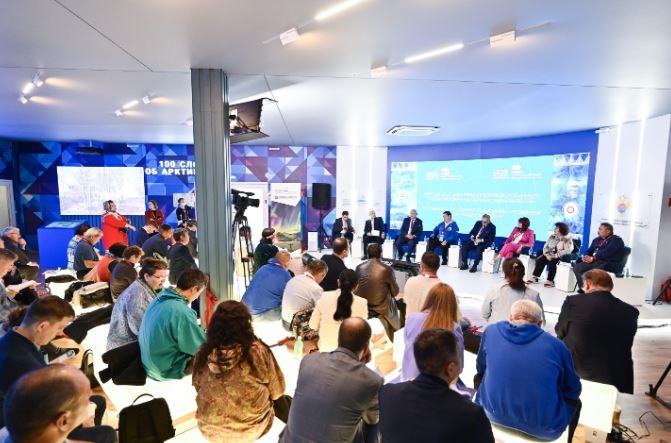
Russia | India
The Creative Business Forum 'Sociocultural Development of Northern Regions' was held as part of the 7th Eastern Economic Forum. The forum was organized by the Innosocium Foundation, the social platform of the Roscongress Foundation, with the support of the Ministry for the Development of the Russian Far East and the Arctic and was part of the plan of events of Russia's chairmanship of the Arctic Council in 2021-2023, which are being organized by the Roscongress Foundation.
 |
EEF 2022 Creative Business Forum
The business programme of the Creative Business Forum was dedicated to the sociocultural development of the northern regions and focused on promising areas of creative industries and the development of the social sector in the northern territories. The session participants discussed the specifics of developing northern cities, industrial Arctic design, the traditions of Indigenous peoples, tourism, the impact of technology on the life in the North, the regional film and animation industry, national cuisine, and the creation of local art residences and art hubs. The sessions focused on social aspects of supporting youth and Indigenous peoples.
"The Creative Business Forum's actual effectiveness as an important tool for developing creative industries directly affects the creation of a strategy for promoting creative entrepreneurship, especially in the changing economic and geopolitical environment. Developing social communication in this special sector of the economy helps to increase social inclusion, establish business contacts, and strengthen the reputation of creative industries as a recognized driver of the modern economy," said Anton Kobyakov, Adviser to the Russian President and Executive Secretary of the EEF 2022 Organizing Committee.
The official EEF business programme included the following sessions: 'North-South: Using Ethnocultural Heritage as a Resource for Sustainable Development', 'The Creative Potential of the North. How to Attract Young People in the Arctic Region', and 'Social Agenda of the Regions: New Global Crossroads'. The Creative Business Forum sessions held outside of the business programme took place at the 'Far East Street' exhibition in the House of Indigenous Peoples pavilion - a new platform dedicated to the culture of the Indigenous peoples of the North: 'Russian Arctic Style: From the Epos to the Product', 'Taming Cold: Special Aspects of Developing Northern Cities', 'Tourism or a Challenge: What Attracts People to the Arctic', 'From the Museum to a Creative Cluster: How Public Spaces Shape a Creative Life', 'Film Industry and Animation of the North and East: New Markets and Technologies', and 'Gastronomy of the Arctic, Siberia, and the Far East: How to Surprise a Picky Guest'.
"The forum showcased the current opportunities that the creative industries have to develop Russia's northern territories. We had a chance to discuss future plans for developing this area and scaling up best practices so that people's creative potential is used as an effective resource for economic growth," said Yelena Marinina, Deputy CEO of the Roscongress Foundation and Director of the Innosocium Foundation.
The 'Soul of Russia. The North' Youth Multimedia and Discussion Campus was organized as part of the Creative Business Forum, with the support of the Russian Ministry of Science and Higher Education and the Khanty-Mansi Autonomous District - Yugra. The campus had a youth press centre, presented various multimedia projects and an interactive map, and hosted master classes on making amulets, national dolls, wood and bone carving, and the processing of leather and birch bark. Public talks with representatives of the creative sector were held in the discussion zone.
"The Arctic Council is constantly focusing on problems involving the development of creative industries. The Association of Indigenous Peoples of the North makes a special contribution to this work. Based on Russia's initiative, several projects are being developed that aim to preserve and develop the cultural heritage of Indigenous peoples as well as maintain their traditional crafts and way of life. These include the idea of the Digital Museums project, which is seeks to bring museum complexes together into a single exposition that would enable the general public learn about the cultural heritage of the Indigenous peoples of the North," said Nikolay Korchunov, Ambassador-at-Large of the Russian Ministry of Foreign Affairs and Chair of the Senior Arctic Officials.
The forum's programme also included the pilot 'Soul of Russia. The North' Audiovisual Culture Festival at which EEF participants took in the modern cultural achievements of northern regions and learned about centuries-old traditions and the epos of the Indigenous peoples of the North as interpreted by young and prominent artists: reggae and rap with melodies of the Even people performed by Kit Jah and MOSKILA, as well as ethno rock by Vanyakan Ikekan. Evenki DJ Gudeykon and Even singer Pyotr Keymetinov also performed on the stage of the 'Far East Street' exhibition. In addition, the Creative Business Forum showcased Ksenia Chilingarova's iconic Arctic Explorer outerwear brand and collections of popular young designers from Yugra and Yakutia. At the festival's finale, Siberian natives from the Indigenous peoples of Chulym, Keto, and Selkup performed modern musical genres featuring their traditions of throat singing and playing on drums made from elk skin.
The forum's business and cultural programme was organized with the support of the government of the Khanty-Mansi Autonomous District.
"Our understanding of the economic potential of creative industries was strongly influenced by the Spirit of Fire International Festival of Film Debuts, which eventually became the main platform for the development of the film industry in Yugra. We were the first region to adopt our own law on the development of creative industries and have drafted a development strategy until 2030. We plan on this sector occupying a 2.7% share in the gross regional product, and our gross product is very expensive, since it's oil and gas. The creative industries sector is becoming a full-fledged sector of the economy. Even though not all the activities in it are structured, it creates opportunities for people who are talented individually. Our job is to create conditions for such people to feel as competitive as possible," Yugra Governor Natalya Komarova said.
One of the main priorities of Russia's chairmanship of the Arctic Council in 2021-2023 is to develop human capital in the region, including the Indigenous peoples of the North. Russia devotes special attention to maintaining the sustainability and viability of the peoples of the North, promoting measures to adapt them to climate change, improving people's well-being, health, education, and quality of life, and ensuring sustainable socioeconomic development throughout the region. The Russian side has initiated projects to digitalize the cultural and linguistic heritage of the Indigenous peoples of the North, develop renewable energy sources, create an international Arctic research station that runs on carbon-free energy, and ensure biosecurity in the Arctic. In addition, Russia is preparing draft proposals on the traditional medicine of Indigenous peoples and the development of creative industries in the Arctic, and is working on an initiative to create Digital Museums of the Arctic.
![]()

